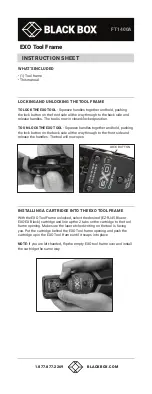
8
o) Be careful with water on the treated surface. Electrical cables must not come into contact with water.
p) During a long standstill of the machine, pull out the main plug.
q) If the machine is to be operated using power from a generator, the generator must be operated in
accordance with the current legal regulations and directives in force. (this applies to the protective earth
conductor in particular) in order to ensure that all safety devices are functioning and to eliminate possible
damage to electrical components.
3.5 Diesel version safety
a)
Read the enclosed Operating Instructions of the diesel engine before using it.
b)
Make sure there is no oil or diesel leaking out of the diesel engine.
c)
Always make a pre-operation inspection before you start the engine. You may prevent an accident or
equipment damage.
d)
Look for signs of damage and remove any excessive dirt or debris.
e)
To prevent fire hazards and to provide adequate ventilation, keep the engine at least 1 meter
(3 feet) away from buildings and other equipment during operation.
Do not place flammable objects close to the engine.
f)
Anyone who is not operating this machine must be kept away from the area of operation due to a
possibility of
burns from hot engine components
. Parts will remain hot for a while after stopping the
engine. Let the engine cool before transporting it or storing it indoors.
g)
When transporting or storing the engine, turn the fuel valve OFF and keep the engine horizontal.
h)
Know how to stop the engine quickly, and understand the operation of all controls. Never permit anyone
to operate the engine without proper instructions.
i)
Do not place flammable objects such as gasoline, matches, etc., close to the engine while it is running. Do
not place anything on the engine.
j)
Refuel in a well-ventilated area with the engine turned OFF. Gasoline / diesel is highly flammable and
explosive under certain conditions. Let the engine cool before refueling.
k)
Do not overfill the fuel tank. There should be no fuel in the filler neck.
l)
Do not smoke or allow flames or sparks where the engine is refueled or where gasoline / diesel is stored.
m)
! Exhaust gas contains poisonous carbon monoxide !
Avoid inhalation of exhaust gases
. Never run
the engine in a closed garage or confined area!
Always wear a dust mask.
Breathing carbon monoxide can cause unconsciousness or death.
n)
If any fuel is spilled, clean it up completely and allow petroleum vapours to dissipate before starting the
engine.
o)
Make sure the fuel and oil level are correct and that the filler cap is closed securely.
p)
Don’t leave the machine laying backwards for a long time, because this may result in fuel spillage.
q)
Comply with all notices and warning labels on the engine and keep them in a legible condition. If a label
should become detached or difficult to read, it must be replaced promptly. For this purpose, contact your
nearest HATZ service station.
r)
Any improper modification of the engine will result in a loss of liability coverage for resulting damage.
s)
Only regular maintenance, as specified in the Hatz manual, will maintain the operating readiness of the
engine.
t)
Disconnect the negative battery terminal before carrying out maintenance work.
3.6 Hydraulic safety
a)
Make sure all hydraulic hose connections are tightened and there is no leakage of oil.
b)
Over tightening could damage O-rings. If a leak still persists, remove fitting and replace O-ring.
c)
Make sure the hydraulic hoses have no damages, signs of wear or other defects.
d)
Hydraulic fluid under pressure is dangerous and can cause serious injury.
e)
Never look for a leak when the unit is under pressure.
f)
Avoid leaks by keeping fittings and hoses tight, only check and service when not under pressure.
g)
Leaking hydraulic fluid is not only unsightly, it’s dangerous. It could make workplace floors slippery,
contaminate the environment and could create a possible fire/explosion hazard.
h)
Never change the oil pressure of the machine! Changing the oil pressure could cause serious damage to
the machine and could result in very dangerous situations!
i)
Only work with the hydraulic oil in an area that is well-ventilated, otherwise you must wear suitable
respiratory protection. Always wear Personal Protective Equipment when handling the oil:
-Protecting gloves (preferably made of nitrile or neoprene.)
-Safety goggles.
-Hydrocarbon-proof clothing and safety shoes.
j)
Avoid long and repeated contact with the skin, after contact wash thoroughly with water and soap.









































